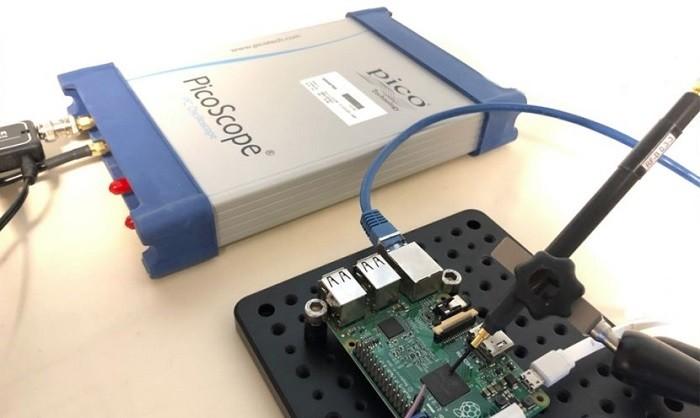A team of researchers at the Institute for Computer Science and Stochastic Systems (IRISA) has just introduced its newly developed malware detection system, featuring the use of Raspberry Pi to scan devices for specific electromagnetic waves. The team's treasure trove, Annelie Heuser, Matthieu Mastio, Duy-Phuc Pham and Damien Marion, and since the unit focused on electromagnetic (EM) signals, there was no need to install anything on the target device.

(Photo: IRISA)
In other words, everything that works with this malware detection scheme can be handled by external entities and is therefore not affected by any level of control over potential malware on a given machine.
However, in order to achieve this goal, the IRISA research team trained the Raspberry Pi to a special training on safe and malicious datasets to help define potential threat parameters.
In addition, the Raspberry Pi is equipped with a Picoscope 6407 oscilloscope and an H-Field probe to detect changes in the electromagnetic (EM) field.
Portal: ACM Digital Library
In the research paper "Exposing in Confusion: Using Electromagnetic Signals for Malware Classification," the IRISA team describes how convolutional neural networks (CNNs) can be used to assess relevant data threats.
The results are encouraging, knowing that the trained malware detection system model was able to achieve up to 99.82% accuracy during testing.